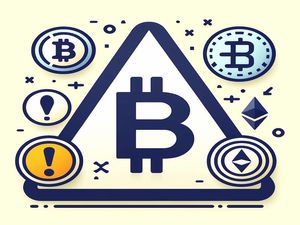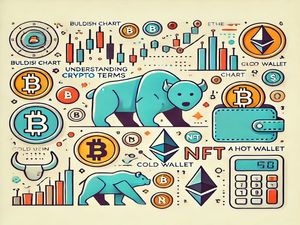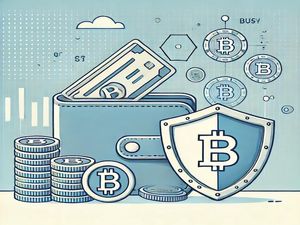The Dawn of Money: From Barter to Coins #
Imagine a world without money, where transactions were based solely on bartering. In the earliest days of society, before our grandparents' grandparents, people exchanged goods and services directly. For instance, trading a mammoth for a horse. However, this system had its flaws. What if you didn’t want a horse, or the person you were trading with didn’t want your mammoth? The barter system was limited by the "coincidence of wants" problem.
The Advent of Coins #
To address these issues, societies transitioned to using the first form of money: coins. Made from valuable materials like gold and silver, coins simplified value exchanges. Everyone agreed on their value because these materials were universally recognized. Coins allowed for more flexible transactions, bypassing the need for a direct trade of goods.
The Age of Banks and Paper Money #
As societies evolved, so did their financial systems. Banks and government control emerged, marking the third stage in the evolution of money. With these advancements, the reliance on physical commodities gave way to paper money, which only holds value because governments say so. For example, a $100 bill in the USA is essentially a promise from the US government to honor that value.
The Digital Revolution: From Physical to Virtual #
With technological progress, money became increasingly abstract. We entered the fourth stage, where digital transactions replaced physical money. Today, money is often just a record in an account book, and transactions are processed electronically. This shift allowed for easier and faster exchanges but also paved the way for the next stage: cryptocurrencies.
Enter Cryptocurrency: The Fifth Stage #
Cryptocurrencies represent the fifth stage of money evolution. Unlike traditional forms, cryptocurrencies are entirely virtual. There are no physical coins or paper money. Instead, they operate on a digital ledger called the blockchain. The blockchain is decentralized, meaning there is no single point of control. It consists of many copies of the ledger, making it resistant to fraud and tampering.
Advantages of Cryptocurrencies #
One of the main benefits of cryptocurrencies is that they are not controlled by banks. This decentralization makes international payments faster, reduces exchange rates, and eliminates transaction fees. Bitcoin, the first cryptocurrency, introduced the world to a public blockchain network. It allows people to send and receive value globally using just a computer and an internet connection, without relying on intermediaries.
The Impact of Bitcoin #
Bitcoin is revolutionary because it provides a public digital payment infrastructure. Prior to Bitcoin, transferring money remotely required a private bank to process transactions. Bitcoin’s blockchain allows for direct transactions between users, making it accessible to everyone and not owned by any single entity.
The Challenges of Cryptocurrency #
Despite its advantages, cryptocurrency is not without issues. Volatility is a significant concern, with values fluctuating widely. Cryptocurrencies are also not yet widely accepted as payment methods, and their high energy consumption during mining raises environmental concerns. Additionally, the lack of regulation can attract criminal activity. Bitcoin is a groundbreaking innovation, but it's not perfect.
The Quirks of Crypto: NFTs and Memes #
Cryptocurrency has also introduced some quirky elements to the financial world. Non-Fungible Tokens (NFTs), for example, are digital certificates of ownership for unique items, like images. The value of NFTs can be astonishing; for instance, an NFT collection by digital artist Pak sold for over $91 million within 48 hours in December 2021.
Another interesting phenomenon is Clickers or Tap-to-Earn platforms, where users earn coins by performing simple tasks or watching videos. These coins can often be converted into real money, adding a fun twist to earning.
And then there's Dogecoin, created as a joke but gaining real value due to viral popularity and endorsements from figures like Elon Musk. Dogecoin’s rise and fall illustrate the unpredictable nature of cryptocurrency investments.
Conclusion: The Future of Crypto #
We live in fascinating times where digital currencies and technologies are reshaping how we think about money. Cryptocurrencies, while not perfect, represent a significant advancement in financial technology. They offer a new way of conducting transactions and hold promise for greater freedom and innovation.
Thank you for joining us on this journey through the evolution of money and the world of cryptocurrencies. If you found this article insightful, don’t forget to check out our latest videos and subscribe for more content on complex topics explained simply. Feel free to share this with friends and family who might find it interesting!
Until next time, keep exploring and stay informed about the ever-evolving world of crypto.











